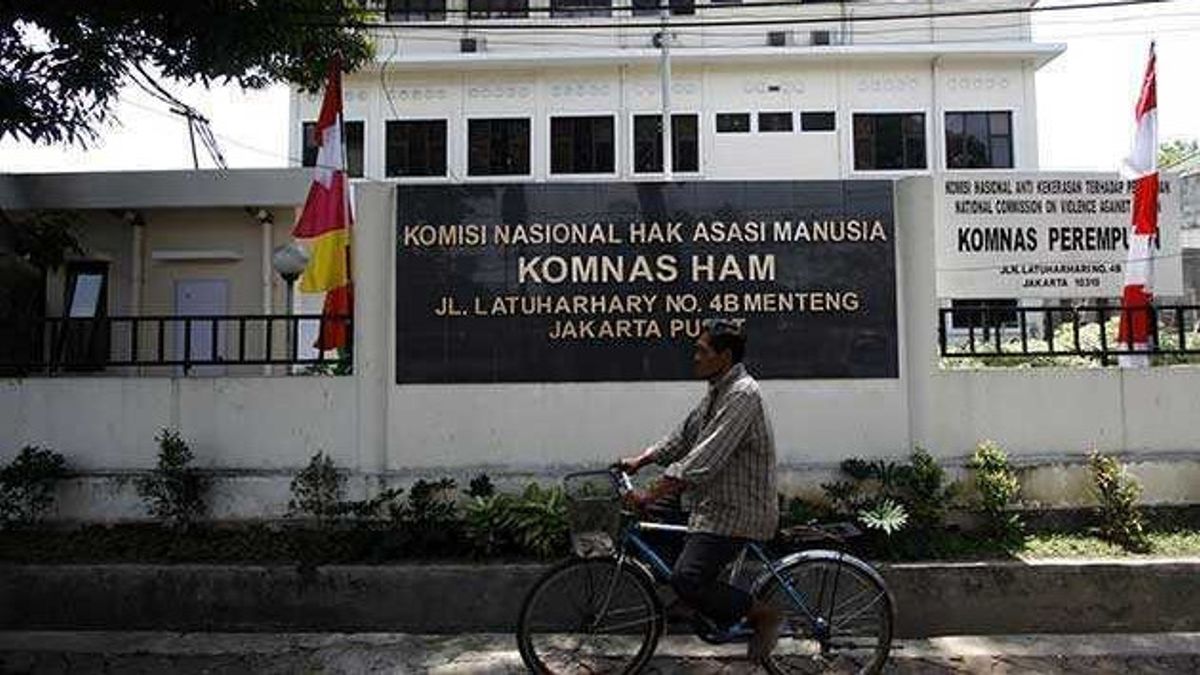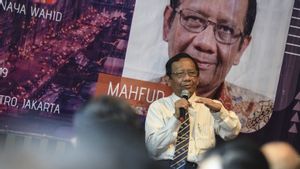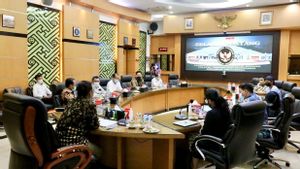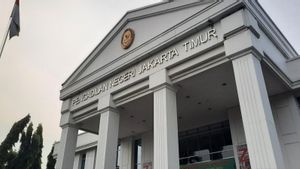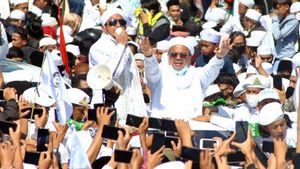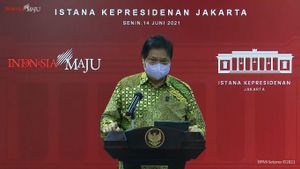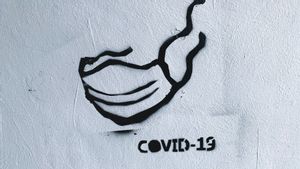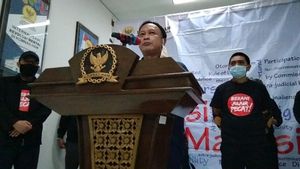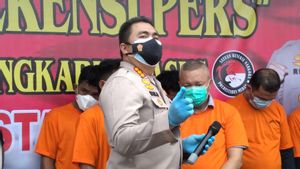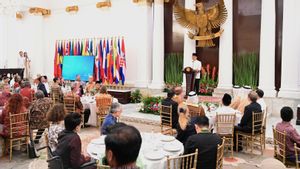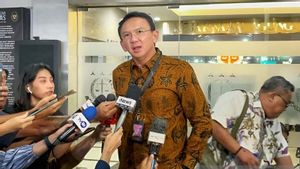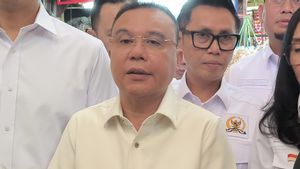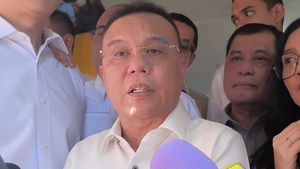JAKARTA - The National Commission for the Protection of Human Rights (Komnas HAM) has spoken about the limited revision of a number of articles in the Law on Information and Electronic Transactions (UU ITE) that will be carried out by the government.
Komnas HAM Commissioner for Studies and Research, Sandrayati Moniaga, said this limited revision would not be a solution to the problem of freedom of expression which was constrained by the law. So, the government was asked to re-examine the plan.
"The Indonesian National Human Rights Commission recommends that the government and the Indonesian House of Representatives review the proposed limited revision of the ITE Law," Sandrayati said in a written statement to reporters quoted on Wednesday, June 16.
According to her, the four articles that will be revised by the government in the ITE Law, namely Article 27, Article 28, Article 29, and Article 36 as well as the addition of a new article, namely Article 45 C, are not the solution to threats and problems of freedom of opinion and expression in the country.
As for Article 27 which consists of 4 paragraphs containing prohibitions on distributing and/or transmitting and/or making accessible electronic information charged with violating decency, gambling, humiliation and/or defamation, and extortion and/or threats.
Article 28 paragraph 1 contains a prohibition on spreading false news that causes consumer losses in electronic transactions. Article 28 paragraph 2 contains the prohibition of spreading hate speech based on ethnicity, religion, and race.
SEE ALSO:
Article 29 contains a prohibition on sending electronic information that contains threats of violence or for personal fright. Article 36 regulates the limitation of the application of the ITE Law only for those that cause harm to other people.
Meanwhile, Article 45C will adopt Article 14 and Article 15 of Law Number 1 of 1946 concerning the Criminal Law Regulations regarding the spread of false news or news that is not certain to be true and can cause trouble in the community.
"The Indonesian National Human Rights Commission questioned the government's basis that it would only revise Articles 27, 28, 29, and 36. Even though there are other articles that are sources of violations of the rights to freedom of opinion and expression," she said.
Sandrayati revealed that the articles considered to be the source of the violation were Article 26 Paragraph 3 regarding the deletion of information; Article 40 Paragraphs 2a and 2b related to prevention and dissemination and the government's authority to cut off access; and Article 43 Paragraphs 3 and 6 related to searches, confiscations, arrests, and detentions.
"Therefore, the limited revision to four articles in the ITE Law is not a solution to the threat to freedom of opinion and expression in Indonesia," she said.
"The addition of a new article, namely Article 45 C, which adopted the provisions of the legislation in 1946, is no longer relevant to current conditions, so it becomes a threat to democracy and human rights," she added.
Komnas HAM, she continued, supports the revision of the ITE Law which the government is discussing to prevent the rubber article. However, she asked for changes to this law to continue to prioritize the principles of human rights.
In addition, Sandra also requested that this revision is in accordance with the Standard Norms and Regulations (SNP) that had been issued by her party regarding the Right to Freedom of Opinion and Expression.
"Komnas HAM encourages and recommends the government and DPR RI to use the SNP as a guide and explanation in revising the ITE Law," she concluded.
The English, Chinese, Japanese, Arabic, and French versions are automatically generated by the AI. So there may still be inaccuracies in translating, please always see Indonesian as our main language. (system supported by DigitalSiber.id)
